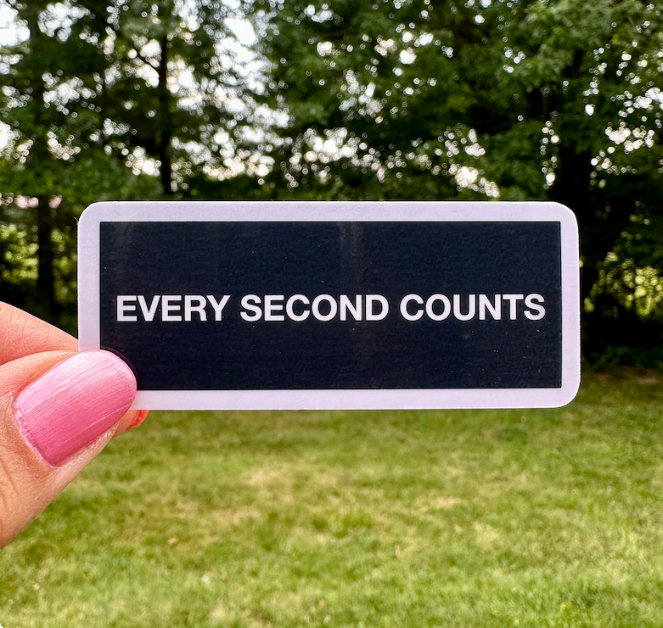Every Second Counts in an Atlanta DUI Case

Every Second Counts in an Atlanta DUI Case
Emergency medical response systems rely heavily on seconds as the difference between life and death; similarly, minutes or even seconds can make a profound impactful statement in DUI cases.
There’s still time to act quickly if a DUI charge has been lodged against you, taking the right steps can help protect your license and build a strong case to beat it.
1. You Have 30 Days to Challenge Your License Suspension
If you were charged with DUI in Atlanta, police officers will confiscate your actual driver’s license and issue you with a temporary pink piece of paper that acts as a temporary permit for 30 days to appeal the officer’s decision to administratively suspend your driver’s license due to failing or refusing a state-administered chemical test of breath, blood or urine. At a DDS hearing the burden of proof is much lower compared with jury trials–only preponderance of evidence must be presented as proof against administrative suspension of driver license suspension by officers.
Many DUI cases rely on blood or breath alcohol tests, and our skilled DUI lawyers can often challenge their accuracy using various means such as legal discovery and providing exculpatory evidence.
An arrest for DUI carries serious criminal and driver’s license penalties that need to be avoided at all costs. By hiring an experienced lawyer early in your DUI case, we can work together with you to protect your license and minimize its effect on your life. Contact our office immediately so we can start work defending you – there is no fee for consultations with one of our lawyers!
2. You Have 10 Days to Challenge Your Administrative License Suspension
Once an Atlanta or Georgia driver is arrested for DUI, two things usually follow. They face both a criminal case in municipal court as well as an administrative license suspension proceeding before DDS. We like to say their case lives two lives: first they get pulled over for sobriety tests or breathalyzer exams or refuse them altogether, with those failing or refusing them immediately being arrested and taken to jail.
Police officers typically give drivers who have been charged with DUI a form that allows them to continue driving for 30 days while waiting to hear whether their DUI will be dismissed, reduced, or proceed to trial. If no action are taken within 10 days, their license will automatically be suspended for one year; and fines, attendance at DUI school, installing an ignition interlock device into their vehicle and other penalties could ensue.
As it stands, however, you have an avenue of recourse with DDS administrative hearings by sending them a letter within 10 days requesting one and appealing the automatic suspension of your license. This letter is known as an appeal letter; most attorneys specialize in handling them for their clients. Your appeal letter should contain basic details of your case such as case number and citation number as well as proof from court regarding final disposition of DUI charges.
3. You Have 10 Days to Challenge Your Ignition Interlock Device
Ignition Interlock Device (IID), more commonly referred to as a car breathalyzer, must be installed in vehicles ordered by courts as an Ignition Interlock Device. Using fuel cell technology to detect alcohol in your breath and require you to blow into it before starting the vehicle, this device also prompts random retests while driving known as rolling retests.
Failing these tests will result in a lockout violation, wherein your car won’t start until another breath sample passes through and clears the device. Repeat offenders could face lengthy suspension periods; additionally, IIDs record other violations such as using “workarounds”, tampering with or tampering with their device or failing to visit regular maintenance service centers for service.
Ignition interlock devices (IID) have now become mandatory for first-time DUI offenders in many states, while judges may order their installation as part of probationary agreements. Any individual found guilty of DUI must typically have an IID for at least a year following conviction.
An experienced local DUI attorney familiar with ignition interlock laws may help you to avoid having an IID required after being arrested by using legal strategies tailored specifically for your case. Even if an order for IIDs does come down from the court, they can fight hard on your behalf to have its requirement reduced or waived as quickly as possible.
4. You Have 10 Days to Challenge Your Conviction
In DUI cases, blood or breath testing evidence will often be used against you to convict of driving under the influence. An Atlanta DUI attorney can challenge this evidence in various ways such as through statutory discovery and providing exculpatory evidence that could exonerate you of charges of DUI.
Police may have mishandled your arrest or failed to follow proper procedures when administering field sobriety tests, which could result in your DUI charges being dismissed or penalties being reduced. Proving this could help get them removed.
Should you be charged with DUI in Georgia, its financial repercussions can be serious. Your car insurance premiums could increase and it may become harder for you to secure employment or acquire professional licenses; furthermore, such a conviction could prevent eligibility for scholarships and financial aid programs.
Georgia takes DUI offenses seriously and imposes severe criminal and driver’s license penalties upon conviction. To minimize these sanctions, hiring an experienced DUI lawyer as soon as possible is key – an appealing success could make all the difference to your life, sparing you the financial strain associated with having a conviction on your record.







